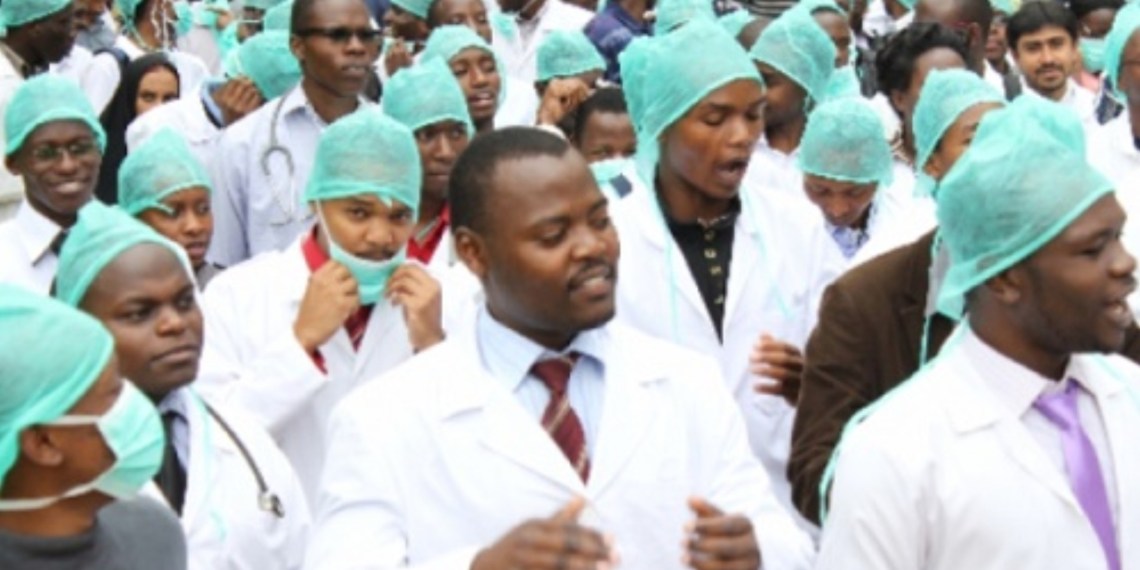After just two days, the Nigerian Association of Resident Doctors (NARD) has announced the suspension of its nationwide warning strike. This decision follows fresh commitments from the federal government to tackle longstanding demands put forward by the association. The strike, which began on Friday and disrupted services across tertiary hospitals, was officially called off late Saturday, with all members instructed to resume duties immediately on Sunday.
The Road to Suspension: What Triggered the Strike?
Nigeria’s healthcare system relies heavily on resident doctors who drive service delivery across federal and state teaching hospitals. The recent walkout by NARD members was a response to a series of unresolved issues, including unpaid allowances, delays in salary adjustments, and questions around recognition of key medical qualifications. According to Dr. Tope Osundara, NARD’s president, the action wasn’t taken lightly, but was instigated after repeated appeals for dialogue seemed to fall on deaf ears.
Key Demands on the Table
- Immediate payment of the 2025 Medical Residency Training Fund (MRTF) to affected members
- Settlement of five months’ salary arrears under the revised (25–35%) Consolidated Medical Salary Structure (CONMESS)
- Payment of outstanding 2024 accoutrement allowance arrears
- Speedy disbursement of specialist allowances
- Recognition of West African postgraduate membership certificates by the Medical and Dental Council of Nigeria
- Issuance of membership certificates by the National Postgraduate Medical College of Nigeria to all qualified candidates
- Resolution of welfare issues in Kaduna State and improved working conditions at Ladoke Akintola University of Technology Teaching Hospital (LAUTECH), Ogbomoso
Impact of the Strike: Hospitals Under Pressure
When resident doctors withdrew their services, the consequences were immediate. Public tertiary hospitals, already strained by resource and manpower gaps, felt the impact keenly. Senior consultants and non-medical staff scrambled to cover the absence, leading to overwhelming workloads, treatment delays, and increased frustration among patients. For many Nigerians—especially those who rely on public healthcare facilities—the brief walkout highlighted just how essential resident doctors are to the health sector’s day-to-day operations.
Federal Government’s Response and the Path Forward
The decision to put the strike on hold came after the federal government provided assurances that it would address NARD’s concerns head-on. According to a NARD statement, the government has already kick-started payments for the 2025 Medical Residency Training Fund and expressed a willingness to resolve outstanding financial and policy issues. As part of the agreement, a two-week window has been set for full implementation of these commitments—underscoring the urgent need for action on both sides.
Dr. Osundara indicated in a conversation with Premium Times that while negotiations are ongoing, there is little room for further delays. “Our members are returning to work because of government promises, but if results don’t materialize swiftly, we may be forced to escalate our action,” he cautioned.
State-Level Struggles Remain
Although the federal strike is on hold, the situation in some state-run hospitals remains unresolved. Resident doctors stationed in state-owned tertiary institutions have been advised by NARD to continue their industrial action until local governments show genuine intent to tackle the issues affecting them. One particular flashpoint is LAUTECH in Ogbomoso, Oyo State, where welfare and administrative challenges have lingered for months. The Oyo State government has been served a 15-day ultimatum by the Nigerian Medical Association, and NARD has hinted at the possibility of an indefinite solidarity strike if satisfactory progress is not made.
Behind the Demands: Why Resident Doctors Feel Undervalued
Many resident doctors in Nigeria cite persistently poor working conditions, frequent salary delays, and a lack of professional recognition as daily obstacles. According to healthcare analyst Dr. Chidi Ugwu, “Resident doctors form the foundation of our teaching hospitals, but they often work in the shadows—overstretched and underappreciated. The ongoing cycle of strikes is a symptom of a system that urgently needs reform.”
Reactions from the Health Community and the Public
News of the strike’s suspension was met with cautious optimism by many Nigerians. Patients welcomed the return of doctors to clinics and wards, while health sector unions called on the government to make good on its promises within the stipulated timeframe. Social media was rife with discussions about the frequent disruptions in Nigeria’s health sector and the consequences for ordinary people, especially low-income families dependent on public hospitals.
Health advocate and Lagos resident Amaka Adeyemi shared her perspective: “We hope this isn’t just another temporary fix. Our leaders must realize that a strong healthcare system is vital—not just for doctors, but for every Nigerian.”
What’s Next for Healthcare in Nigeria?
As NARD resumes work and the government moves to address the outlined demands, all eyes are on the implementation process. Previous experiences have shown that while agreements are often reached, execution can lag behind, prompting repeated cycles of industrial action. Healthcare experts warn that systemic reforms—including timely payments, fair allowances, and improved working environments—are essential for lasting industrial harmony.
For Ghana and other West African countries facing similar challenges, Nigeria’s experience serves as a reminder of the critical importance of valuing frontline health workers and investing in public health infrastructure.
Conclusion: The Call for Sustainable Solutions
NARD’s decision to suspend its warning strike sends a strong signal that dialogue and partnership remain possible—but only with concrete, timely action from government stakeholders. As the association reiterated: their commitment is to a healthy Nigeria for all, but that vision can only be achieved if authorities at federal and state levels prioritize the welfare of those working at the heart of the country’s healthcare system.
What changes do you think are needed to keep Nigeria’s health sector stable and prevent further strikes? Share your thoughts in the comments—and don’t forget to follow us for future updates and in-depth local health stories.
Do you have an experience as a doctor, patient, or health worker you’d like to share? Have a tip, insight, or story about healthcare in Nigeria or West Africa? Get in touch—we welcome your voices!
- Share or sell your story: story@nowahalazone.com
- General support and feedback: support@nowahalazone.com
Follow us on
Facebook,
X (Twitter), and
Instagram
for discussions, latest headlines, and special news features. Your opinions matter—join the conversation today!










